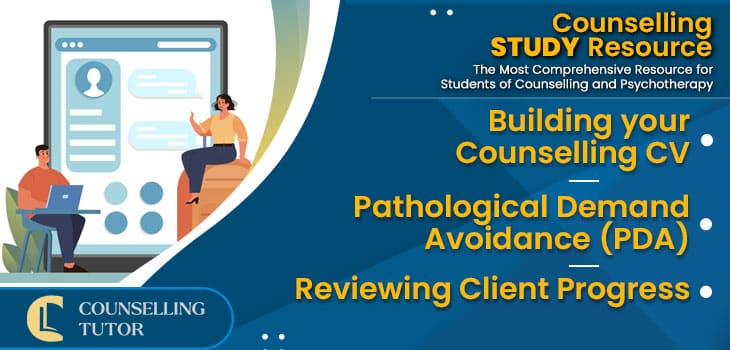See Counselling Skills Used in Real Sessions by Qualified Therapist
Real Sessions – Real Presentations – Real Skills
Gain the competence and confidence to use counselling techniques effectively!

In Episode 336 of the Counselling Tutor Podcast, your hosts Rory Lees-Oakes and Ken Kelly take us through this week’s three topics:
Building your Counselling CV
A counselling CV is your first professional impression – and it should reflect not only your qualifications but also your values and personal qualities. In this section, Rory and Ken explore what makes an effective and authentic CV:

Real Sessions – Real Presentations – Real Skills
Gain the competence and confidence to use counselling techniques effectively!
In this week’s Practice Matters, Rory speaks with Nicola Durrant about Pathological Demand Avoidance (PDA) – a profile on the autism spectrum characterised by a high level of anxiety around everyday demands.
The key points of this conversation include:

On-demand access to a rich lecture library covering theory, skills, and professional development for counselling students—Mapped to the UK awarding body criteria
“The Student Library has been BRILLIANT, I can’t recommend it enough!
It has been a lifeline in helping me prepare for practice and my first clients. If you’re considering it, go-for-it, it’s absolutely worth it!”
Kelly – Graduated and now in practice.
Reviewing client progress is a core part of ethical practice, particularly in short-term therapy or student placements. In this section, Rory and Ken look at why reviews are important and how to approach them:
Building your Counselling CV

Get on-demand Certified CPD that is implementable in your practice
